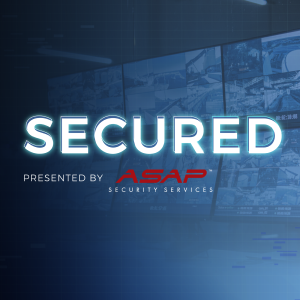
How Security Professionals Help Schools Find Weak Points
 2023-05-30
2023-05-30
Welcome to another insightful episode of the SecurED Podcast. Today, we are honored to have Andrew Callis Jr., a former educator with 25 years of experience and a current member of M6 Global Defense, join us. Andrew brings a unique perspective as he transitioned from the field of education to the security space. Matranga starts by asking Andrew about his perspective on what is most needed in the K-12 space from an educator's point of view. Andrew emphasizes the need for relevant training rather than overwhelming amounts of training that people often don't take seriously. He points out that during his two years in the safety and security space, he has observed a significant level of carelessness on campuses and a lack of qualified security professionals.
Educator's Perspective:
Mike Matranga: Welcome, Andrew. As someone who has made the transition from education to the security industry, what do you believe is most needed in the K-12 space from an educator's perspective?
Andrew Callis: Thank you, Mike. In my opinion, what is most needed is relevant training. Many people feel overwhelmed by excessive training, leading to a lack of seriousness in its implementation. To move forward effectively, we require focused and practical training. During my time visiting over 200 campuses, I have observed a concerning level of carelessness among individuals.
Key Issues and Examples:
Mike Matranga: Carelessness seems to be a recurring issue on campuses. Could you provide some examples of what this carelessness looks like and how we can address these situations?
Andrew Callis: Absolutely, Mike. When assessing a school, I look for vulnerabilities and weak points. One alarming instance was when I walked around a building for 16 minutes, getting lost multiple times. Shockingly, during my exploration, I passed by a campus police officer without being questioned. This lack of awareness and engagement is indicative of a complacent mindset. The breakdown lies in individuals being more concerned about themselves rather than the job at hand.
Importance of Staff Engagement:
Mike Matrangaa: We've discussed the foundational aspect of behavioral analysis in school security, particularly among students. However, how important is it for teachers and educational staff to actively engage with students, identify those in crisis, and have the necessary resources to support them?
Andrew Callis: It is of utmost importance, Mike. However, educators often initiate conversations with relevant parties only when it's too late. It is crucial to establish strong relationships with students and involve the appropriate school personnel who can provide a comprehensive understanding of the student's situation. Education goes beyond academics, and by addressing these concerns, we can bridge the gap and focus on driving instruction.
The Role of SROs and Staff Awareness:
Mike Matranga: Let's discuss the role of School Resource Officers (SROs). Do you believe having an SRO is sufficient to ensure campus security?
Andrew Callis: While SROs are relevant and their presence is needed, they alone cannot guarantee campus security. The key lies in staff and student awareness. We often emphasize the "see something, say something" approach. Engaging with students, recognizing their needs, and having the confidence to intervene or report concerns are vital. It's the responsibility of every administrator to ensure the safety of all individuals within the school community.
Differentiating Factors of M6 Global Defense:
Mike Matrangaa: Andrew, you've been working with M6 Global Defense and ASAP for some time now. What sets our organization apart from others in the industry?
Andrew Callis: I like to refer to it as variety, Mike. Within this structure, we have a diverse group of talented individuals. As a lifelong learner, I value the opportunity to learn from different people with various backgrounds.
More Episodes
 2024-11-06
2024-11-06
 2024-10-08
2024-10-08
 2024-10-02
2024-10-02
 2024-09-19
2024-09-19
 2024-09-19
2024-09-19
Create your
podcast in
minutes
- Full-featured podcast site
- Unlimited storage and bandwidth
- Comprehensive podcast stats
- Distribute to Apple Podcasts, Spotify, and more
- Make money with your podcast
It is Free
- Privacy Policy
- Cookie Policy
- Terms of Use
- Consent Preferences
- Copyright © 2015-2024 Podbean.com




